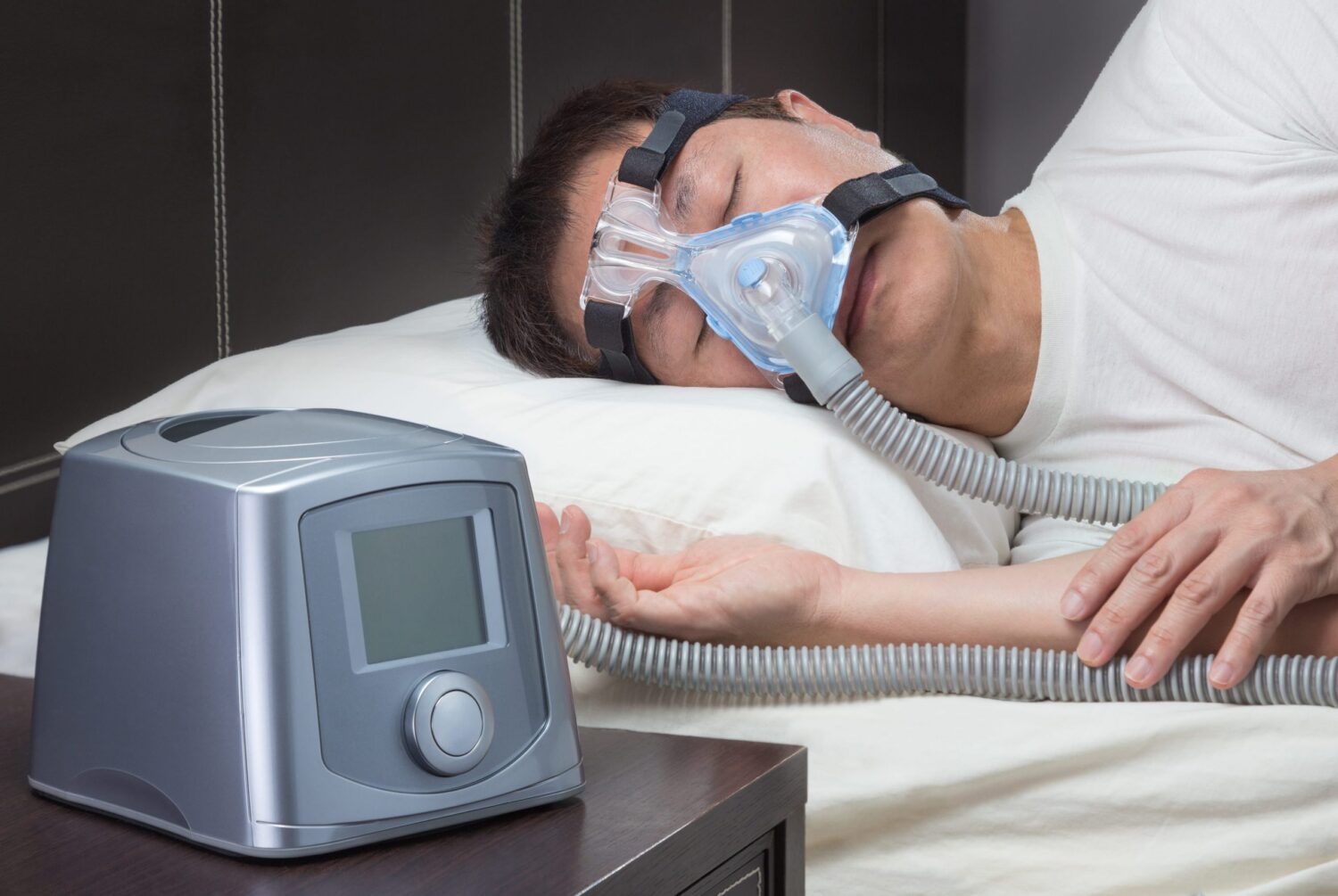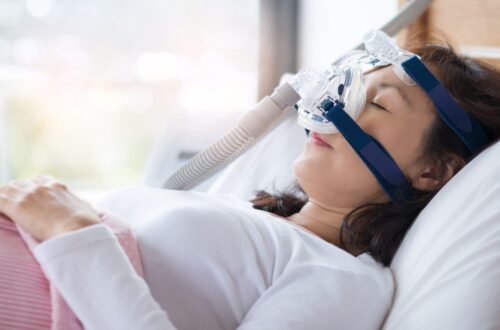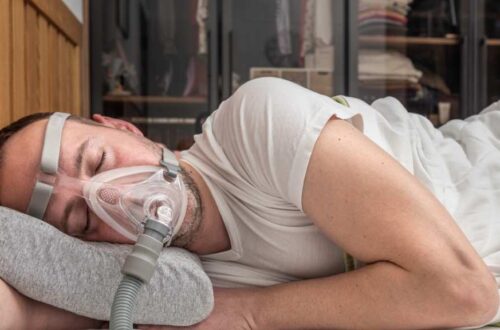-
Note this about different CPAP masks
A variety of CPAP mask varieties are available. In this post, we’ll discuss the many CPAP masks that are now available.
Nasal CPAP masks
This CPAP full face mask creates a shield over the nose and has a dome-like shape. Due to the wide variety of shapes available, there are many possibilities to choose from to fit various facial characteristics. Since air is not being forced into the nasal passages directly, the airflow seems to be a bit more natural. This also makes it possible to employ greater pressures, which is perfect for those who have severe sleep apnea as a sleep apnea mask can be explored greatly.
Nasal mask chin strap
Nasal CPAP masks, despite their name, must be worn via the nose in order to be effective. If you breathe via your mouth while you sleep rather than your nose, a nasal sleep apnea mask won’t function. Chin straps are a common feature of products on the market that you may employ to avoid inadvertently letting your lips hang open. People with allergies or chronic sinusitis shouldn’t choose this option since it is improper for their situation.

The padding on the nasal mask’s seal may not work as well if you have facial hair, which might result in air leaking out of the device. The head straps are also uncomfortable, according to some consumers, who also claim that they strain their nasal bridges. The apparel may frequently be properly fitted and altered to assist remedy this issue.
Benefits of a nasal mask
Because greater pressures may be reached, it is appropriate for treating severe sleep apnea mask cases. In comparison to full-face CPAP masks, the shapes offered give a wide variety of alternatives for the best fit.
Nasal mask drawbacks include:
- the fact that mouth breathers and those with nasal congestion shouldn’t use the CPAP mask
- the danger of air leakage with facial hair
- the inability to use the CPAP mask before night or while wearing glasses.
Nasal pillows and splints
Two padded prongs on this kind of CPAP mask, sometimes called a nasal pillow, are inserted into your nostrils and are designed to rest on top of your upper lip. Since some individuals find other CPAP masks to be too restrictive or uncomfortable, this one is the simplest and most portable option available.

Nasal cushions are more practical since they are less solid and cover less of your face than other options. If you wish to wear the CPAP mask for a while before going to bed, this is the best approach to do. Due to its lower profile, you won’t need to change your evening routine, unlike with other CPAP masks that would need you to do so since they would obscure your eyesight and make it impossible for you to wear glasses.
Since the seal is only made on the nostrils, using nasal cushions may still be useful for those who have more facial hair.
Since air is pushed straight into your nasal passages at high pressures, it could be quite painful. As a consequence, nasal cushion sleep apnea masks may not be the best choice for those with severe sleep apnea. Dryness and pain in the nasal passages might be caused by direct airflow.
It should be noted that the gadget only works for those who breathe through their noses. It may still be advantageous for you to use nasal pillows in combination with a mouth-shutting device even if you can frequently breathe via your nose while sleeping with your mouth open.
Advantages of using a nasal pillow
It can be worn by those who have facial hair, is more comfortable to wear when awake, less likely to cause claustrophobia, and there is less likelihood of air leakage.
One drawback of using a nasal cushion is that they are inappropriate for those who breathe through their lips.
People with severe sleep apnea may find high pressures unpleasant, and they may also have nasal dryness as a result.
Full face CPAP masks
Since they are bigger and cover the nose and mouth, these CPAP masks are ideal for those who breathe through their lips. Full-face CPAP masks are an option to consider if using a chinstrap in the past caused you problems or if you often have stuffy noses.
You can withstand far higher pressures with a full-face mask since the air does not instantly enter your airway. Given that it permits the use of high pressures, this CPAP mask is an excellent choice for those who suffer from severe cases of sleep apnea.
Due to its extra weight, a full-face mask has a greater risk of coming undone during the course of the night, which is especially likely if you have problems falling asleep. On the other hand, a lot of the straps may be adjusted to suit as you choose. People who sleep on their backs are the best candidates to utilize this CPAP mask.
The larger surface area that comes into touch with your face creates more potential points for air to escape; this is particularly true for those who have facial hair. Your eyes might get irritated and dry from the leakage coming from the top of the CPAP mask.
Since of their thickness, full-face masks are challenging to use before bed because they impede your field of vision and make it challenging to wear glasses at the same time.

Advantages of full face mask
It is beneficial for back sleepers and ideal for severe cases of sleep apnea mask issues since it can withstand high pressures. Additionally, it is the greatest choice for those who inhale via their lips.
The possibility for air leakage, the bulkiness of the CPAP mask, which makes it easier for it to wander during the night, and the difficulty of wearing the CPAP mask when awake are all downsides of a full-face mask.
What factors should I consider while selecting a CPAP mask?
The use of CPAP masks can vary from person to person. Subjective and dependent on the kind of CPAP mask, its form, and how well it fits, general comfort and sensations of claustrophobia are both experienced.
It is crucial to be entirely honest with your doctor when discussing the prospective usage of CPAP regarding every element of your nightly routine and sleeping patterns. This will give them the option to choose the CPAP full face mask that will serve you best. Don’t forget to put on several styles and check that the available adjustments offer you the optimum fit.

Restore normal breathing when sleeping
alleviate signs including sleeping loudly and daytime tiredness
Other health issues associated with sleep apnea, such excessive blood pressure, may be improved with treatment. Additionally, treatment may lower your risk of diabetes, heart disease, and stroke.
If you have sleep apnea, discuss the treatment choices that will be most effective for you with your doctor or a sleep expert.
Lifestyle Changes
A few adjustments to your daily routine or habits may be all the CPAP therapy you need if you have minor sleep apnea.
Avoid using sleep-inducing medications and alcohol. Your throat has a tougher time remaining open when you sleep as a result of them.
If you are fat or overweight, lose weight. Losing even a little weight might make your symptoms better.
To help keep your throat open, sleep on your side rather than your back. You may avoid sleeping on your back by using certain pillows or clothing.
If necessary, use nasal sprays or allergy medications to keep your nasal passages open at night. Find out from your doctor whether you could benefit from these therapies.
More to read: You’ll find these CPAP machines in Australia



